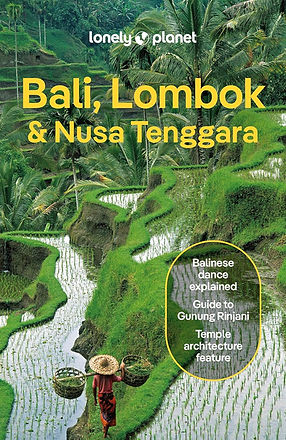
Term 2: Lombok, Indonesia People, Culture, and Innovation
Guiding Inquiry: How can communities honour tradition while innovating for a sustainable future?
Key Concepts: Sustainability, Biodiversity, Human Impact
Focus: Decent Work & Economic Growth, Responsible Consumption & Production, and Industry, Innovation & Infrastructure
Highlights
The Lombok term offers a dynamic immersion in the diverse ecological and cultural fabric of Indonesia. Learners begin with surf exploration and ocean literacy at Kuta Beach, connecting physical skill with marine awareness. The journey continues through field studies in Mount Rinjani National Park, where students engage with geological and ecological systems in one of Southeast Asia’s most breathtaking volcanic landscapes.
Midway through the term, we collaborate with the Indonesia Biru Foundation, deepening understanding of regenerative practices, conservation, and social impact. The experience culminates in an extended stay on an organic farm, where students engage in permaculture, sustainable living, and hands-on agroecology—a slow, intentional close to the term that grounds learning in the rhythms of land and community.
All of this is interwoven into a transdisciplinary inquiry on regeneration, systems thinking, and ecological interdependence.
Example Itinerary

Week 1
Week 1: Flipped Learning (Remote Preparation)
-
Research: Indigenous land management, regenerative tourism, and waste innovation in Indonesia.
-
Mini-docs on shark conservation and permaculture.
-
Journal Prompt: “Where do innovation and tradition clash—or collaborate—in my own culture?”
-
Begin Bahasa Indonesia basics.
Weeks 2-8
In-Person Immersive Learning
-
Ocean & Reef Regeneration
-
Plastic Innovation & Circular Economies
-
Surf & Sustainability
-
Highland Ecology & Water Systems
-
Regenerative Agriculture & Food Systems
-
Identity & Resilience
-
Ethics & Empathy in Action

Weeks 9-10
Remote Project-Based Learning
-
Finalizing proposals for community-based innovation projects, rooted in sustainability and cultural context.
-
Virtual collaboration with Indonesian changemakers and regenerative entrepreneurs.
-
Preparing student-led presentations, ethical business pitches, and multimedia reflections on the term’s inquiry.
Weeks 11-12
Family Time & Transition
-
Rest, travel, and reflection.
-
Optional family-led eco-travel experiences to reinforce sustainability concepts.

Lonely Planet Lombok
Discover Lombok beyond the postcards — from wandering through Kuta’s vibrant markets to learning from local farmers in the hills, swimming in turquoise bays beneath towering cliffs, and exploring waterfalls hidden in the jungle.
This Lonely Planet guide is the perfect travel companion, revealing both the island’s iconic sights and the off-the-beaten-path treasures that will shape our time there.




